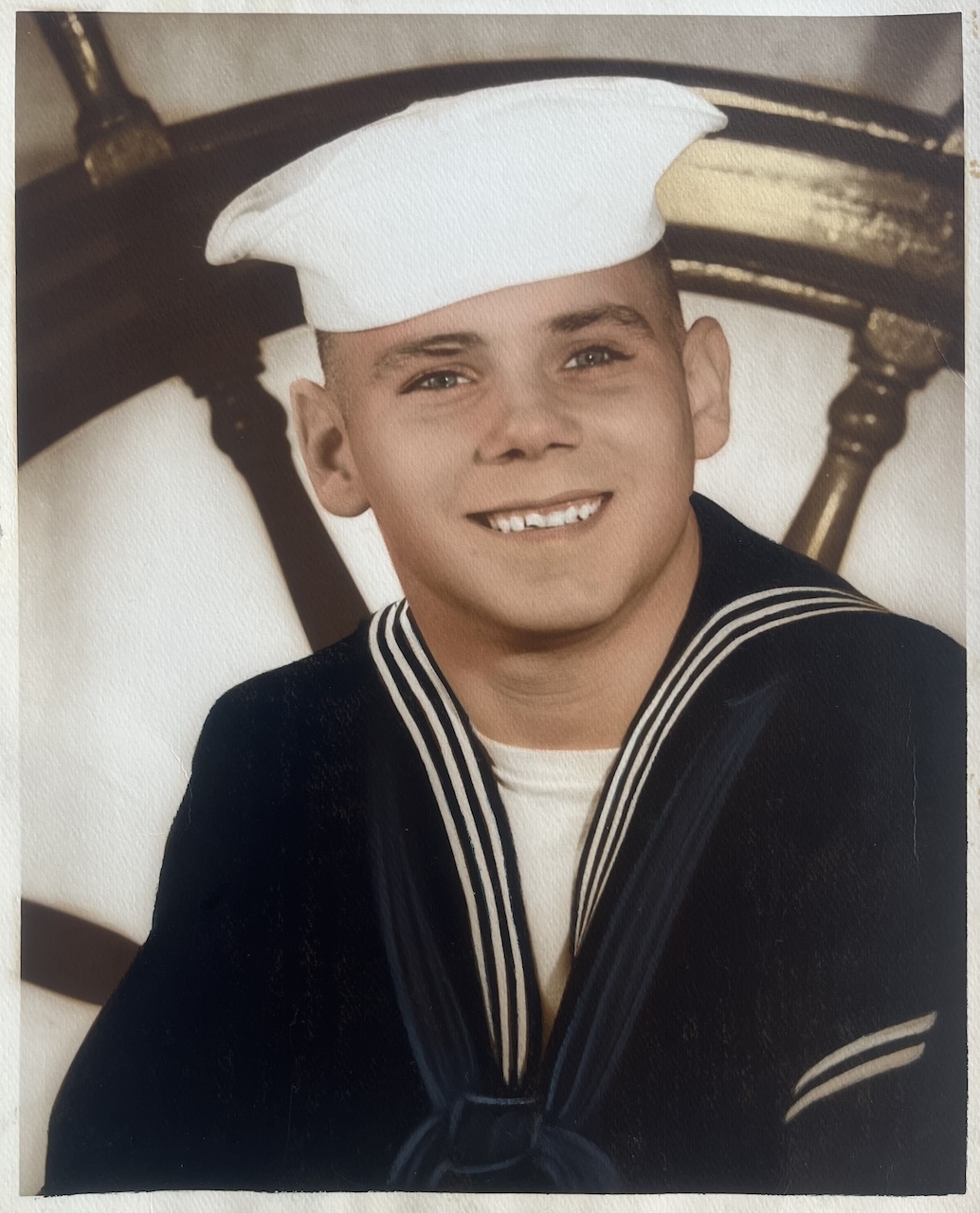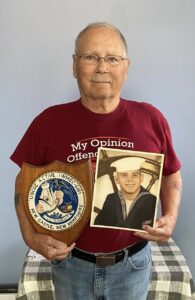Main Street News

Veteran Profile: Charlie Wilson
In honor of Veteran’s Day on November 11, we are profiling veterans from around the area all month long to honor their service. This installment is Charlie Wilson, a Coast Guard veteran. I also feel that it’s pertinent to mention that this profile is particularly close to my heart, since Charlie is my grandfather.
Charlie Wilson of Clinton Corners, NY enlisted in the U.S. Coast Guard in 1966 at the age of 19 and served for a total of four years.
“When I was 16, I tried to enlist in the Marines, and my father went ballistic,” he said. “He had fought in World War II and tried to enlist for the Korean War, but they told him that he was too old. He didn’t want me to go to Vietnam, and that’s exactly where I would’ve gone right away.”
Charlie’s father was a big influence on him and encouraged him to enlist in the Coast Guard instead. “My dad had a friend that was in the Coast Guard reserve down in Brooklyn, and he took me on a Coast Guard helicopter over Floyd Bennett Field and told me about the search and rescue that they did, and I liked that.”
Charlie was a swimmer in high school as well, so at age 19, he enlisted in the Coast Guard. He first attended boot camp in Cape May, NJ, and was supposed to be there for eight weeks, but he was taken out of the class just after seven weeks to be a part of a crew for a new ship that was built in Sturgeon Bay, WI.
“After we got out there, it turned out that the ship wasn’t ready for a crew just yet, so they flew us up to Pease Air Force Base in Portsmouth, NH, and we lived there for about two or three months,” he said. “Pease was the nicest base. They had the best food and the best facilities. It made me want to change over and join the air force,” he laughed.
 Following that, he was sent to Newport, RI, for two weeks of firefighter training and damage control, before finally being sent back to Wisconsin to board the USCG WMEC-618, a medium endurance cutter ship known as “Little Tough Guy”. From there, they traveled from Sturgeon Bay, through the Great Lakes and the St. Lawrence seaway, to bring the ship to the North Atlantic where it would be docked in Portsmouth, NH.
Following that, he was sent to Newport, RI, for two weeks of firefighter training and damage control, before finally being sent back to Wisconsin to board the USCG WMEC-618, a medium endurance cutter ship known as “Little Tough Guy”. From there, they traveled from Sturgeon Bay, through the Great Lakes and the St. Lawrence seaway, to bring the ship to the North Atlantic where it would be docked in Portsmouth, NH.
Out on the water
Charlie served two years in Portsmouth, and then in Boston for an additional two years. Most of what he did during his service was search and rescue, as well as some border security.
“What we did was go out and patrol a specific area of the water. There was a very large Russian fleet off of the North Atlantic coast for fisheries, and they had one mothership and about 30 fishing ships,” he said. “We made sure that they were legal and didn’t enter into our waters.”
Charlie shared that they also boarded the United States’ fishing fleets and towed ships back to shore when they would break down, saving many fishermen from detrimental situations.
In the late 1960s, a passenger plane crashed in the North Atlantic and Charlie and his crew were charged with recovering bodies during the search and rescue. “We probably spent a week out there looking for bodies through the wreckage,” he said. “One of the things I remember is that we had to eat all of the ice cream out of the freezer to make room for the bodies. It was bad.”
He also took part in border patrol between Florida and Cuba, mostly picking up refugees who were near death in their attempt to make it to America. “The refugees would be on tubes, rubber tires, tiny make-shift boats, and whatever else they were trying to get to America on. We would pluck them out of the water, as many of them were about to drown, and then drop them off in Miami.”
While surveying the waters between Florida and Cuba, his crew also worked with the National Geodetic Survey to acquire information about waterspouts, which are funnel clouds (much like tornadoes) that occur over water and cause significant damage to boats.
One of the things that Charlie remembers most from his service is simply being out on the water. “I liked being on the water, especially at night. There aren’t any lights at all on military ships, so to be out by the bow and look at the sky is just amazing. It’s completely dark around you and there’s nothing but the sound of the water hitting the hull.”
He also shared that each day, everybody participated in a four hour rotation where they had to complete different duties, including serving as the helmsman or the lookout. “I always like the hour that I’d spend being the lookout. I liked standing out on the front of the ship and looking out at the Atlantic.”
Impacts and aftermath
When asked how serving in the military impacted him, Charlie said, “It made me older sooner.”
When he enlisted, he was 19 years old, newly married, and living away from home for the first time. “It made me grow up much quicker.”
In 1970, he made the difficult decision to leave the Coast Guard due to familial responsibilities. “They offered me training to become a helicopter pilot, and that was something that I really wanted to do. But we had Lisa, who was one year old at the time, and I would be away a lot and would get sent to God knows where, so I gave it up,” he said. “I started out in a helicopter at Floyd Bennett Field, so I would’ve liked to bring that full circle, but I turned it down.”
Charlie left the Coast Guard as an E-5 rank, or a Second Class Petty Officer. “I would’ve been out as an E-6, but they would’ve sent me out to sea just before I was discharged,” he added.
After he left the Coast Guard, he went back to work at New York Telephone, where he had been working prior to his enlistment. He said it wasn’t difficult to assimilate back into normal life, since he lived off base during his service. “I went back to a job that I had previously held in Brooklyn and I knew some of the people, so it wasn’t a big issue.”
When asked if there was anything he wished civilians understood about military service, Charlie said that he’s not sure that people really “respect what it’s all about.”
“I was born at the end of World War II, and everybody I knew had just come home from war. If you watched a movie on TV, it was always a war movie where there was a good guy and a bad guy. It didn’t seem as complicated then as it seems today. That’s what I grew up with, so when you see all of these anti-war, anti-military demonstrations today, it’s hard to swallow,” he said.
“Everybody wants to protest against something. Those serving don’t make the rules, they’re just doing their job,” he said. “I was fortunate that I didn’t go to war, and that’s only because of my father and honoring his wishes. So to see people protesting those who are volunteering to serve their country and put their life on the line, it just makes me sick.”
To learn more about the U.S. Coast Guard, visit their website here.


